#India’s Greatest Teacher
Explore tagged Tumblr posts
Text
Sarvepalli Radhakrishnan Quotes: 15 Lessons From India’s Greatest Teacher
Sarvepalli Radhakrishnan was a teacher, philosopher, statesman, and India’s second President. He came from a poor Brahmin family in Tamil Nadu and was born on September 5, 1888. As a scholar of Indian philosophy and religion, he taught at many universities in India and abroad. He contributed to the Indian independence movement and the Indian constitution. In 1954, he received the Bharat Ratna, India’s highest civilian honor. To know this great personality better, we will look at some Sarvepalli Radhakrishnan Quotes.

#India’s Greatest Teacher#India’s second President#Sarvepalli Radhakrishnan#Greatest teacher#Philosopher
0 notes
Text
Another monument for me this time in my hometown Harlem New York City for finding the cure for HIV/AIDS that is what the statue symbolizing me finding the cure for HIV / AIDS and funny stuff it is on 135th street across from the Percy Sutton school and I laugh at the 32nd precinct now I found the cure for HIV / AIDS and I sponsor it get Cabenuva it will help you go undetected for HIV eliminating the chance of it developing into Aids the miracle has finally reached the general public and I sponsor it so forget the noise and take your medicine as prescribed so you grow up healthy and strong success is the best revenge guaranteed you heard it from me Cabenuva is that cure and I sponsor it thank you I'm honored for the privilege to help , thanks .
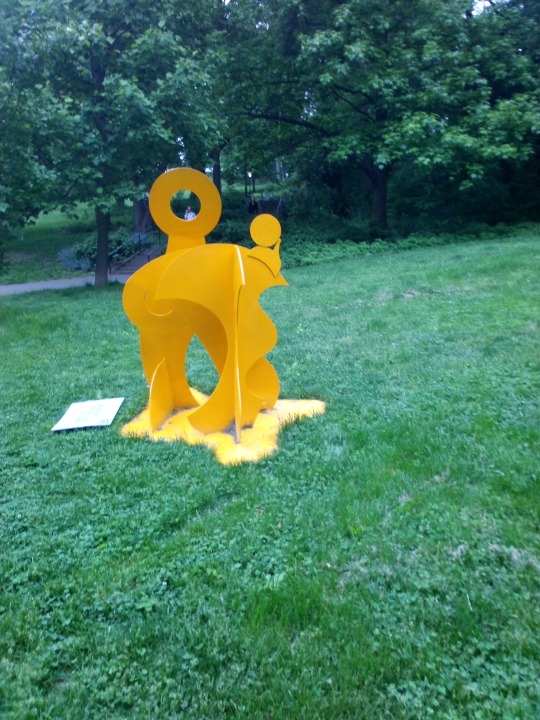
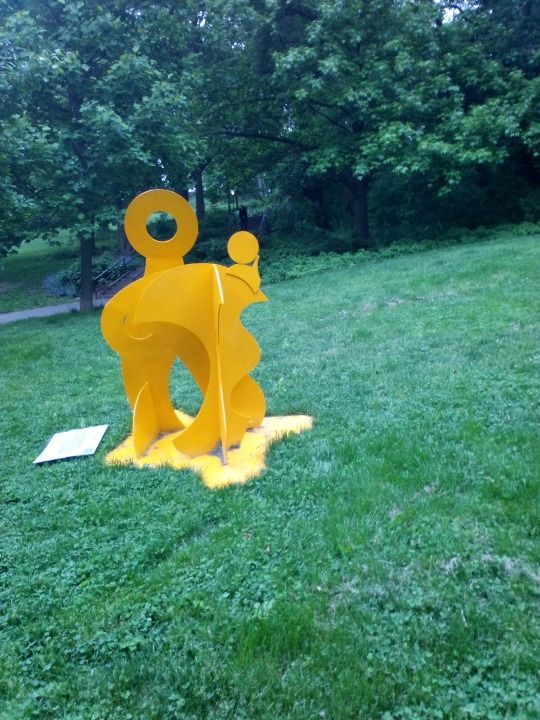
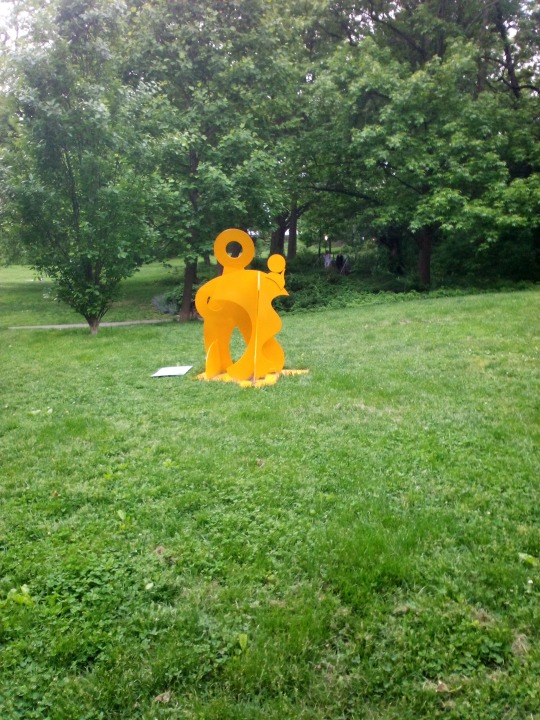
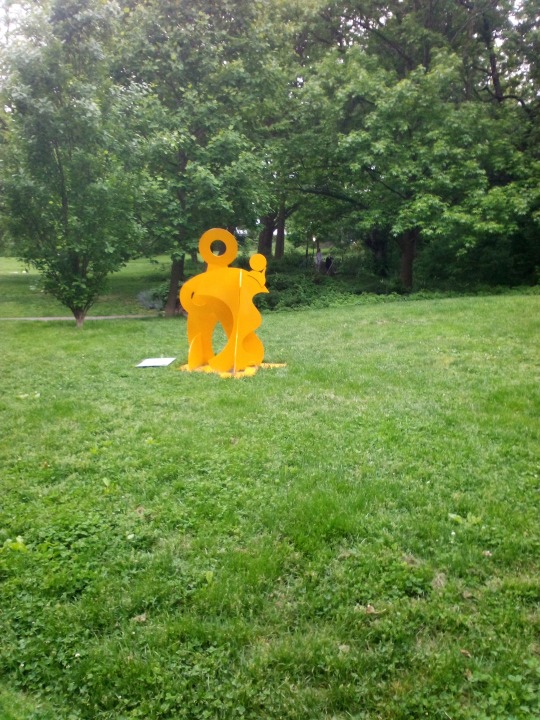
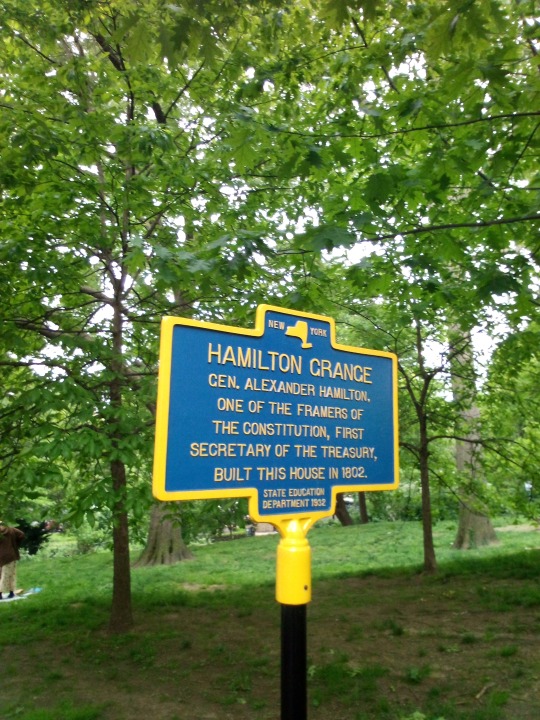
Thank you so much . I love you according to Christianity you are forgiven and according to Joel Osteen I can't compromise with that , no thank you I forgive you .

Thank you I'm honored . Wherever their is people starving and dying from hunger and HIV AIDS use my page to help that country whether it's India , Brazil and not talked about regions and areas in poor neighborhoods in places like Africa and raise the salary for people in Dhaka give them water pumps and more on their paychecks so they can afford to take care of their families thank you it has been great helping the people goodbye and good luck to you and your family .
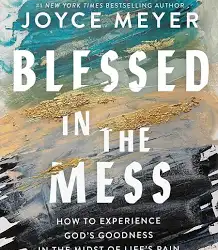





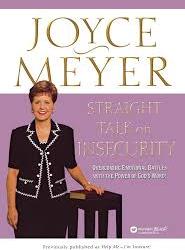

Eat good , be content with the little bit that you do have like good friends and put God first and everything else that you want and better yet need will be added to you , and read these books from my personal coach , trainer and mother Joyce Meyer and new Minister and teacher of New York City my mom and your mother Joyce Meyer . I'm just happy that all my friends are successful in life and prospering in their career and have blessed families even though the puppet masters had me on the computer trying to hate on them on facebook and this social media tumblr page for years typing on the computer trying to hate on them but they are good and doing great in life and now my conscious is clear and it is not as expensive pain for me no more as long as they good great music great wives and kids and longevity in their career I decided to go back to them as their friend and stay with my friends and keep that circle of friends that I grew up with and keep the hope for myself because I still believe in love for myself like that Vado and Mary J Blige song beautiful Mary J Blige , I got the fame I wanted and the mother play I wanted sponsored by the 2nd stage theater I got what I wanted basically now I'm at peace with myself now and is being educated by my ministers and pastors and my second call to do something I love , music and stay with God first place in my life .
youtube
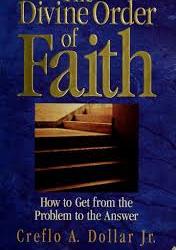
The greatest donation I can give to anybody , I give you a dollar to get your life together and in some places it can pay your bail and God will take that hold off of your life and free your head from the birds I mean the vultures and stop Satan your enemy from stealing the word God's word from your heart and memory .
Congratulations to me for my gift 🎁 from the Brooklyn public library a book called the making of a king 👑 by Robert Hardman about me King Charles the third and the modern monarchy and them crowning Nicki Minaj and Cardi B real Queens of the world officially like official Queens of the world now that is hot thank you both sponsor me and my practical basic education and it is good since I'm a private person and shy away from the crowd both women is people that the public the hood like more than me and love so they could be friends with them they are like my protectors what I mean is like I give you somebody you could be friends with if you don't like me a lot of people don't a d aren't going to like you can't like the person helping that is how it is that is always how it is with leaders and since people see me as the geek type quiet reserved guy my female friends women friends are more cool and outgoing and love to meet people and chill with the common people and party with them while I stay to myself , thank you it has been an honor helping with this page I hope this help find you in good health good luck and goodbye , thanks .
I woke up here and I inherited it the same place where I'm at its bad but it is mines I inherited it , thank you .
Yes I do stay in a not so clean and dangerous place well a dirty place if you call it that but if you know anything about me I actually own the neighborhoods I live in I own the hospital my own hospital given to me by a Governor it's my incubator , I own the parks in my neighborhood New York City parks now all of them now and where I live in where the girls don't get to come to see me here but I venture out to see them sometimes we are cool they call it a liability but I inherited these neighborhoods and New York City and a rough and dangerous place to live but it is okay and hopefully my goodness , hospitable charm and love for them warms them and help them like I said thank you I'm working on getting out of here so I will see you outside thank you .
I'm King 👑 the decree from the British Monarchy thank you that is huge thanks and own the 2nd stage theater is mines and no I don't mess with street people no more I did everything for them got them Citibikes computers on Rikers Island and legalized weed for them and I moved on from them and Governor Kathy Hochul told me to dump them slim down lose the weight from the overload of carrying my enemies and their girlfriends off of me and get my life together and I'm doing just that no thank you that should make us friends .
I'm going to end it on this note here Vado from Harlem a rap musician and Mary J Blige got a song called I still believe in love that is somebody from my neighborhood that made it a way for me to be able to get a future for myself financially through a regular paying job and getting myself together and I said thank you to him and Mary thanks now Im stepping off from them and wish them the best of luck in their career and goodbye to me from my old neighborhoods and people from my past so that I can get my life together anybody got any ideas on how a super hero can get a good paying job , see you on there side of success personal success thanks and goodbye it has been an honor helping the people .
youtube
249 notes
·
View notes
Photo

Twelve Menacing & Protective Mythological Figures
The term mythology comes from the Greek words mythos (“story of the people”) and logos (“word”) and so is defined as the spoken (later written) story of a culture. Modern scholars have divided myths into different types which serve many different cultural purposes.
Myths serve to explain the origin of the world, how various aspects of that world operate and why, the meaning of suffering and death and, always, serve to reinforce cultural values. Central to these stories are the supernatural characters – gods, heroes, demons, spirits – whose purpose is to convey the message.
These figures, whatever other purposes they served, were expressions of the fears and hopes of the people. The gods, in every ancient civilization, were considered benevolent in general, but there were always some deities who chose to make life difficult for humanity.
In the same way that one will tend to be more careful to humor and placate an intimidating teacher, professor, or supervisor more than one who is gracious and easy-going, the ancients were careful to make provision for menacing forces before thanking those who only meant them well. Amulets and charms, votive figures, incantations and prayers, gestures and daily devotions were used to protect one's self from supernatural threats and, in some cases, these practices found expression in a specific supernatural being.
Twelve Mythological Figures
The following list comes from cultures around the world, and the figures are chosen as representative of types. There are thousands of such figures from world mythology, and all have their own individual characteristics and particular functions in the culture that gave birth to them.
The twelve entities under consideration are:
Pazuzu – Mesopotamia
Bes – Egypt
Lamia – Greece
The Lemures – Rome
Nian – China
Huma Bird – Persia
Bhramari – India
Ixtab – Mesoamerica
The Morrigan – Ireland
The Manananggal – Philippines
The Kelpie - Scotland
Akabeko – Japan
Some of these are deities but the majority are supernatural entities endowed with powers lesser than the gods but far greater than human abilities. The underlying form of all the creatures signifies change, transformation, which is as inevitable as the human resistance to it. Humans derive comfort from the known and familiar and tend to shrink from, or actively resist, perceived threats to their established norm.
At the same time, there are obvious challenges in life which common sense dictates one should try to avoid such as death, disease, and loss, and these figures represented those threats and the hope of avoiding them. Among the greatest fears of the ancients, judging from the number of artifacts and incantations concerning it, was infant mortality because it threatened not only population growth but social stability.
Continue reading...
70 notes
·
View notes
Text
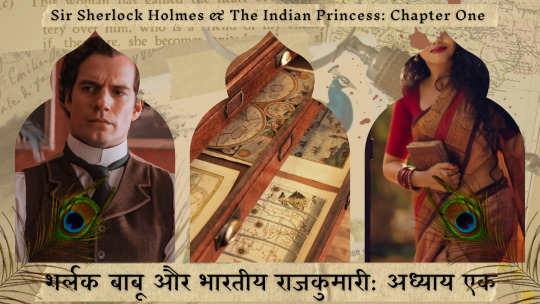
Sir Sherlock Holmes & The Indian Princess
शर्लक बाबू और भारतीय राजकुमारी
Chapter 1 || Masterlist || Chapter 2
Chapter Summary: In England, Sherlock Holmes receives an alarm letter from his dear friend Doctor John Watson. In Delhi, You don't mind being a teacher, but with new building plans, you reflect on your circumstances and opportunities.
Pairing: Sherlock Homes x Desi!reader
Chapter Warnings: 18+ Dead Dove Do Not Eat, Slow burn, generational trauma, colonisation, implied murder, death of a parent, classism & caste.
Word Count: 6k

Author Notes:
★ Everything written in bold is being said in Hindustani
★The Reader character goes by the last name Newalkar and is the daughter of Damodar Rao Newalkar → the adopted son of Rani Laxmibai. I must advise this story is pure fiction but based in the occupation of the British Raj that invaded and Colonised India.
★I am a White European/Australian woman, I apologise for any cultural or historical inaccuracies. I am receiving help from online sources and desi Tumblr mutual @livesinfantasyland and I heavily encourage other Indian/South Asian/Desi readers to share their thoughts, constructive criticism and help as I write this story.
Inspiring Song: "Paint it Black" by Ciara

11:35pm Thursday 26th June 1890, 221B Baker Street, Marylebone, Westminster, London, England.
This story begins and ends with the sound of rain.
Tink!
The roof had begun a leak. And when this leak came to play it had a habit of landing directly on the head of a disgruntled and lonely fellow. The greatest detective in London who could not find a friend. Granted I must inform you, Mr Sherlock Holmes did in fact have some friends, but by misfortunes, none were presently in the country.
Tink!
He angrily sighed. Another drop of rain hit his head.
He launched from his arm chair and grumbling moved an empty teapot to sit on the cushion he previously sat. The drops thus made a small tinkling as they landed inside the empty pot.
Plonk!
He rubbed his eyes and checked the time on the mantle piece clock. He had lost weeks of his life. Hours squeezed down to into unknown days or months, he could not tell. It did not help how he consistently drew the curtains closed to design total darkness other than the fireplace and his candles to light up his home.
A light shiver ran up his spine. The weather was dangerously cold today. His fingertips upon inspection grew from pale white to a dark pink.
Plonk!
He wandered if perhaps it was time to have a holiday in sunny Spain.
A knock on his door broke his imagined vacation like a hammer to glass.
His pesky landlady Mrs Hudson intruded on his stuffy dust filled space. She grumbled nonsense about the filth of her apartment she’s rented out to the famous Detective before handing him a thick envelope.
Plonk!
And the moment he could see and recognised the handwriting he snatched the Letter from her wrinkly fingers and banished her with a bellowing shout. The woman fluttered out and muttered her further disgusts of his treatment.
Plonk!
But Sherlock did not care for her opinion or rather anyone’s for that matter, Sherlock only cares about the stamp he tore opened the parchment he eagerly unfolded.
John Watson. Doctor, soldier and dear friend. He was Sherlock’s greatest companion to note. He had never felt such brotherly love until he met the very man seeking a roommate here in baker street.
Doctor and detective used to comb London for clues to solve crimes and very noticeably took an interest at the sports of pleasure. The luxurious brothels of London welcomed him and his friend with open arms and spread legs. Doctor Watson was the easy victim of sex while Sherlock was one to enjoy his opium pipe and watch his friend succumb to the mouths of half-pound harlots.
And among these adventures of interesting women did the doctor find himself in a savage tussle with another jealous male patron...
Sherlock recalled the evening with mirth. His dear friend, brother in arms had been pummelled to a pulp and drunk as a daisy. So when Sherlock escorted him to a hospital, the imbecile had declared that he was doctor of the ward and did not need any stitches. It is a grand thing perhaps Doctor Watson could not fathom the memory of yelling too proudly that his medicine could be only found in the elixir of a woman’s warm cunny.
His nurse, a dirty bird at heart had giggled at this...that nurses name was Mary Mortenson. And she became the very enamoured Mrs Mary Watson.
Sherlock was not fond of his friend becoming so besotted with his bride. He tolerated the woman’s presences at best. Unspokenly, the detective saw competition to gain the doctors attention and it was becoming far too obvious that Mrs Watson would win. Every. Single. Time.
After a month of young love the married pair had decided their honey-moon should be experienced back in John’s birth land...Delhi, a city in India. Mary was to meet the senior Mr and Mrs Watson. Coincidently, the English rose was not averse to the foreign lands…she so happened to have been born in Agra. Happy and married, they boarded and sailed across the sea.
Sherlock had high hopes their ship would run scarce of supplies so they might return quickly. He missed his dear friend and even his annoying wife.
The letter in between if thumbs and fingers were the first words from them he had gotten in nearly three months. The letter read as followed...
“Dear Sherlock,
Mary and I have come to my home I grew up in as a boy. I was blessed with my parents merry welcome. However, unfortunate circumstances have designed two coffins. For merely a week into our visit my beloved parents have passed. I have yet to decide whether to bury them in the English tradition or burn them in the Hindi ritual. My predicted return back to Baker Street may appear futile and non-existent. Please. Come visit us as soon as it is convenient.
13, 25, 27, 16, 1, 18, 5, 14, 20, 19, 27, 8, 23, 5, 27, 2, 5, 5, 14, 27, 13, 21, 18, 4, 5, 18, 5, 4.
Your sincere faithful friend, Doctor John H. Watson.”
Plonk!
Sherlock’s eyes raced over the page, and cupped his mouth staring at the plethora of numbers. They were not any numbers. John was a simple man, he wasn’t the smartest being but Sherlock appreciated his humble attitudes, he liked the doctor admitting he wasn’t a world genius, just a man who knew his medicines.
So when an enigmatic set of numbers was written at random Sherlock thought of the most simplistic cypher.
For every number was a letter. 1 being A and 26 being Z, leaving 27 to be a space between a word.
His brows lifted. The message was clear and alarming.
Plonk!
“My Parents Have Been Murdered.”
He determined his dear doctor had written this cryptic message under the desire of secrecy. His eyes lit up. It meant John needed Sherlock’s help. A case. Something was amiss. John did not know the killers name. If he did, he would’ve written it or not bothered to write asking Sherlock to visit at all.
He couldn’t have run faster to his rooms to start backing as soon as possible.
Plonk!
Sherlock Holmes had know idea what he was going to find in a land he had only heard stories from Watson’s childhood. He was eager to see his friend, to help him and to finally have an adventure.

01:35pm Friday 11th July 1890, Anglo Arabic Secondary School, Desh Bandhu Gupta Rd, Ajmeri Gate, Delhi.
You dragged the piece of white chalk across a black board and sketched a simple phrase in the English language. You smiled to the young faces that filled the room, sitting in long benches and desks. Their eyes wide and curious, eager to learn.
You waved your hands, “Now, clean your chalk slates students, you are going to learn how to spell good afternoon in English.”
They wipe them down with their small damp clothes and tucked them away in the groove at the top of their slanted desk. You waited patiently until they all sat with their hands resting flat on the wooden desks, mouths shut, eyes seeking knowledge.
You underlined each letter of the first word, “Gee, ouw, ouw, dee, this spells ‘Good’ and now ‘Afternoon’ is Aya, eff, tee, Ee, Ara, eynnn, ouw, ouw, eynn.”
The young boys sounded it out with you. Their sweet pubescent voices unionised. You smiled. They were so advanced at such a young age, most of the boys had come from average and wealthy families that could afford them to come to such a fine school. Many were Muslim, others Hindu, it was a good sign of peace. The youth coming together despite their differences. And on odd days you would teach the white children, boys and girls of British and French families who wanted their children to learn Hindi, Arabic and Urdu.
You didn’t mind teaching white children, some of the boys could be very disrespectful but you gathered it was behaviour picked up from their arrogant fathers. It wasn’t the young boys who had pillaged these lands, it was their fathers and grandfathers.
“The gee,” you circled the G, “Remember in English is also pronounced like Guh and,” you tapped the double o’s, “Ouw ouw in english together when two is said ‘oooowa’. Followed by dee being said as Dah. So, let’s say it together?”
You dragged a white line under the word and sounded it out with your students.
“Guh-oooow-dah.”
You smiled.
You repeated, “Good.”
“Now let’s look at the word ‘afternoon’,” you announced.
You cleaned the board and looked back at your students. One of the little boys who sat in the front was rubbing his eyes. You smiled softly. He was only six years old. His older brother, a young man now would most likely be the one to collect his brother from school and carry him sleeping back home. You looked at the bell tower just outside the window. It was nearly time for your students to go home and you to return back to your lodgings.
“Aye and eff is said as AAaff, then tee is a quick Tuh! And what is Ee and Arrra sound together children?”
“Errr,” they all purred.
You sounded out half of the word with them, “Aafftuherrr.”
You rubbed your chalk dust covered fingers together and further explained as you pointed to each important letter, “eynnn makes a Na, sound. And we just practiced double ouw, so sound it out.”
Like a symphony of speech, you all said together, “Guh-oooow-dah Aafftuherrr, Na-ooow-na. Good Afternoon.”
The deep bowing clang of the bells outside rang through the yard and open window shutters. The children looked eager to leave. Their hands were readily holding their slates, ready to put them inside the empty wooden box in the corner of the classroom where they kept all their slates and dusters and the bucket for where they kept their chalk.
“Good afternoon students,” You bided.
“Good afternoon Teacher Madam,” They called back.
“You may go back home now. Practise your English alphabet song.”
The boys were fast as rabbits, leaping from their desks and fleeing the classroom out the hall and down the stairs. But some at least saluted you as they left. It was a habit they’d picked up from the white boys who saluted their male teachers. You smiled to yourself as you waved them out. Each left with beaming smiles and playful chatter among themselves.
As you went about sweeping the floor after wiping the chalk from the board, you wondered if you should go to the temple and pray for your students successful education or if you should consider washing your clothing today. It had been very dry today, any moment and you knew the wet season and humid rain would arrive to flood the streets clean of dust and fill the forests with life of green goodness.
As you put away the English education books on the small shelves by the door, a familiar face came rushing in, flushed and excited
If it wasn’t her jingling anklet and bangle that announced her To your classroom, it was her shrill cry of your name that did.
“Y/N! Quick!” Miss Anjuli Paraiyars exclaimed, “You need to come with me.”
Her dark ink hair was peaking out from her sun patterned veil. The wispy curls stuck to her sweaty forehead and framed her dazzling walnut eyes. They were flooded with mischief that matched her biting lip. Her brows wriggled lightly.
Placing the last book onto the shelf you turned to acknowledge your dear friend.
“Anjuli,” you happily sighed, “Whatever is the matter?”
She waved her hands about, hoping to quicken you along and out the door, “It is the Watson son, Doctor Watson, he wants to speak with you with important news.”
Your eyes widened. ‘What on earth does that poor soul wish to say to me? After the death of the good Mr and Mrs Watson, I would assume he was still in mourning, why would he call upon me?’
Following your friend outside into the scorching sun, you lifted your saree over your head. She had her family Ox and cart waiting outside the school gates.
“What important news Anjuli?” You said a little standoffishly.
“He’s offering you a job,” She said giddily. She climbed up into the cart and leant down offering her hand to you. Once in the cart side by side she sighed, “That’s all he would tell me,” She grabbed the reigns and cane and tapped the Ox to start moving out onto the dirt road, “But we all know how very generous he can be like his dear parents.”
Anjuli was right. The late Victoria and Hamish Watson’s were angelic to the local community. Victoria had been the very soul to teach your late mother English and she was the one to encourage you to attain education enough to become one of the very few first female Indian teachers. She was a well known philanthropist, often aiding the sick and homeless and funding the Indian hospitals. Hamish was a local accountant, financial advisor and lawyer. He was known to be good to the children particularly. He would often hand out sweets as he walked down the street with his briefcase bag. He often aided the locals find new homes when the British planned to evict them and replace white families in their place. The English couple had lived in the country for many decades, long before you were even born. They spoke fluently enough and mimicked the culture so well that you could’ve believed they were born here themselves.
You sat back and nodded, “May their souls attain moksha.”

02:45pm Friday 11th July 1890, Willingdon Crescent, Central Ridge Forest, Delhi, India.
The sun baked down on the streets of Dehli. The Ox cart rolled along, it’s tail flicking the flies circling it’s flank every so often.
You pinches your saree scarf and covered your face before a bug could fly into your mouth.
Anjuli had to hold the reigns and cane, she leant closer to you and giggled as she nodded to the khaki covered soldiers. Walking by in many small groups.
Anjuli had a terrible habit, she fell in love too easily. For some ungodly reason Anjuli admired the foreigners that had come so long ago and invaded your beautiful country. Maybe she liked how different they looked. The flaxen hair and ice blue gazes in the faces of pale freaks were so opposite to the raven manes and hairy russet warmth of Indian men. It was erotic for her. You just didn't understand how she could so easily find infatuation with the people you considered an enemy, and so should she.
“Oh look at them,” she giggled girlishly.
You rolled your eyes, “I’m looking.” There was a timid strain in your voice. You had no real interest to entertain Anjuli’s fascination.
When Anjuli noticed how you in fact we’re not looking but rather looking ahead on the road path she playfully smacked your arm.
“Look!” She sucked her teeth and teasingly scolded, “Do you not know delight at the sight of men?” She reached forward and abruptly touched the front of your blouse, squeezing around for the softness of your breasts, “Are you sure you’re a full grown woman?” she smiled wickedly and prodded her finger in between your legs covered by your top petticoat.
You squeaked loudly and batted her hand. She howled with laughter and kept giggling even as you scowled at her beneath your veil.
You turned your head away from her and scoffed, “I am not as easily swayed by British soldiers. They look so sickly as pale as they are,” your nose wrinkled, “How could I righteously take a husband in front of beloved Lakshmi and her Vishnu when they look like they tempt Yama too take them at any moment?”
Your friend rolled her eyes, “Oh nonsense,” she tapped your hand and waved her fingers into a crowd of soldiers, “See there that one, his hair the colour of wheat, he is a handsome man. He would make a fine husband.”
And as the cart rolled passed, you couldn’t help gag at the smell of the same man Anjuli proclaimed would make a fine husband.
‘A fine swine perhaps. Many sow in heat could come trotting to him from miles with such a putrid scent.’
Your head wobbled and your flat palm waved at her, “A husbands good qualities are not to stand on his appearance alone. One day he will grow old, fat, bald and ugly.”
A long dragging sigh came out from the woman beside you. She managed to move both reigns into one hand and playfully tugged your saree away from your face
“You’re no fun, come on,” she jerked her chin out to the same street as the ox was about to pass another group, “Tell me you don’t find any of them a little attractive?”
You stared at the oncoming group and now sucked your teeth. You crudely stated, “They’d be far more attractive if they left. Went back to their lands, leave our villages and the people of Bharat in peace.”
Anjuli stared blankly at you. Before she could pinch and prod you again you relented and noticed one of the men in the crowd so different from the others.
He was tall, his hair a dark chestnut that matched the shade of his suit. His face was bare and clean in comparison to the soldiers who all adorned moustaches and muttonchop beards on their faces. He was carrying a rather large brief case and walking stick.
“Fine...that one,” you nodded, “In the brown English clothes.”
“The one wearing a suit?” Anjuli snickered, “He’s not a soldier though?”
You giggled,“And it is for such a reason I find he is most handsome among them.”
You both gazed at him as the ox fully passed by. Anjuli smiled at you.
“He is rather tall. Strong. What do you think he does?” She asked, “Maybe he is a farmer, or a bricklayer?”
You shook your head. ‘No. He couldn’t be.’
“He dresses too finely. It is not their Christian Sunday Sabbath today. He probably is a rich businessman, with a wife and children.”
You looked back to the path as the dusty road became thicker in trees and travel further away from the street. You thought about that strangers wife, what she might look like, probably some English rose with a house full of servants at her command, surrounded by maids and wet nurses for her children. She would live in a grand house and hold soiree’s, welcoming guests from all around to celebrate life. She would have a massive library and a place of worship. It was the life you should’ve had, the life you were owed and denied merely by the changing events of history and the extinguish of your father’s birthright.
Your soft smile faded; you felt a twinge of repulsion mixed with a hint of anger. You’d think after all these years you would’ve chosen to forget this, ignore this, let go and accept your circumstances in this life.... You didn’t live with your father anymore who would remind you practically daily why not to trust the English or any white man, as if you didn’t witness their subjecting abuse and consistent disrespect.
Your eyes fluttered shut, you reached to your side and touched Anjuli’s wrist. She was your truest friend despite her differences and low status. Anjuli came from a Shudra family, and you? You were the daughter, the descendant of Brahims and Kshatriyas...now lowered to the Shudra caste class…You never knew the lavish life of the Jhansi palace, nor tasted the rich foods served on golden plates and surrounded by pretty creatures of the palace menagerie. You would never know the joys of running through the gardens with other children in the royal family.
Everyone was gone, everything was gone. All that was left was your father who scarcely remembered that life but shared all he remembered so his memories would live on through you and bring you hope that one day it would be yours. It was a cruel false hope…
Eighteen years ago, you had been born inside of a nice house in Indore to the daughter of a prestige painter Vasudeoraobhau Bhatavdekar. As far as you knew, your father loved your mother very much for the incredibly brief time that they were married. A rare jewel in beauty is how he described her often. A marriage of love and choice. Your father said she was softly spoken and obedient, but it was her unconditional love for him and his dreams that held his heart in appreciation.
It was by unfortunate command that she would fall ill to childbed fevers after you were born. After you…a girl...not a son. You were nothing in the eyes of the British raj and had no chance of being installed as an heir for any restoration…you were the last hope and failed before your first breath. And that was something you’d never forget.
For a small time, you were raised in that home and then it was decided by your father that you would learn English. His tutors were not available, so he cut your hair short and shipped you off to Delhi with your young uncle Save to the Anglo Arabic Secondary School…It did not take the teachers and headmaster long to discover you were a girl. Before you were to receive the beating of a lifetime it was Mr Hamish Watson who so happened to be accounting the school costs to save you. He took you to his wife who taught you English and then set you to live with his maid servants, Anjuli’s mother.
Your friend spoke after some time of silence, “Oh, I’m meant to tell you- My cousin Vijay sent word this morning, he’s seeking a wife. My mother wants me to ask if you’d like to meet him, a prospective match.”
Your lips curled into a sneer, “Isn’t he the one that use to tie our braids together in a knot during Diwali and chase us around the street making animal noises?”
You recalled a young teenage boy about five years your senior with a tooth gap and ruffled hair. He was so annoying, calling you names and bullying you by calling you fat and ugly. He was spoilt and rude. He mocked you when you told him you were a princess. He said you were a princess of pimple pox and nothing more. Oh how you remembered the way your blood boiled.
“We were children, he was playing, only a boy,” she smiled, “He’s a man now, studying to be a barrister in Bombay but he will be visiting in a few weeks to help us move.”
Ah yes, the dilemma you needed to find a solution too soon. It was a month ago that a letter had been nailed to the house door, it was an eviction commandment made by the British military and government. The Paraiyars family and you had to leave the home in Raisina hill, why? Because the British do what they like…building concrete monstrosities over beautiful land and demolishing the history of your people like it was worthless dust. Rumours spread about a grand governors palace was to be built there, but they couldn’t burn the village to ash with people living inside...well....at least not on their "morally good Christian conscious."
“Vijay I believe owns a cottage near the seaside. You could be his bride and live with him instead of moving back to Indore to your father.”
Moving back was not possible...not after his most recent letter.
“Father has…felt it improper for me to move back to Indore. He believes that my existence would cause me more harm than good under his jailers’ eyes…His pension he shares I give mostly to your mother for board. I have saved my wages, I am considering…moving to a boarding workhouse in Jhansi or Agra, but tell your mother I would like to greet Vijay when he arrives…”
You smirked looking down at your fingernails, “Lakshmi forbid I run out of money and need to resort to the ‘charity’ of Christians or to prostitution.”
Anjuli made a face, shaking her head and brushed her shoulder into yours, “You wrinkle your nose at every man, white, black or bronze,” she smiled cheekily, “I doubt you’d make a good prostitute.”
“Anjuli!” You shrieked.
Both you and her erupted into a large happy shrill of giggles enough to gain head turns from passing public. You and her playfully poked your elbows into each other. Anjuli was right, there was no chance that you could make a suitable prostitute…you hadn’t had sex and didn’t know how to please a man, most men you barely liked. They could be selfish. Anjuli on the other hand, she was a frisky thing. She had kissed a hundred men and given her ‘precious flower’ to a boy back when she was thirteen. She had no shame. Anjuli had shared her sordid tales of lust to you many times. You knew her boyfriends that snuck her out at night and returned her by morning. You promised never to tell her mother or father who surely would’ve disowned her if they knew how promiscuous she was. It was best if they believed she made money with her parents in the markets selling dyed clothes and wooden jewellery boxes.

03:04pm Friday 11th July 1890, 5 Bistdari Road, Central Ridge Forest, Delhi, India.
Arriving to the Watson Bungalow was simple enough, the ox cart rolled and bumped over the rock and sandy grooves of the path. Anjuli pulled the reigns of her beast and helped you both down. She tied her ox to the outside gate posts, the precious creature lowered its head and munched on dry grass that still was hinted in green. The ox would be glad as soon the wet season would hit and all the food delight lush and green would return.
You and Anjuli stepped inside and removed your sandals, Anjuli then led you through the house. It had been some time since you had been here. Anjuli’s mother was dismissed as Mrs Victoria Watson’s maid when the new Watson bride had arrived.
Doctor Watson, their son was a short ferrety man. His face was covered in a long mutton mustache like a snake of hair slithering along his face. He was a grown man from the teenager you had met many years ago. His parents had sent him to Europe to school, as far as you were aware he had join the army and fought in some notorious war battles like The of Battle of Abu Klea.
As you entered the bureau office, you found him hunched over some paperwork, his brows scrunched. His eyes lifted up and brightened his face on seeing you both.
“Oh Miss Paraiyars, Anjuli dear,” he said clapping his hands and opening a drawer in his desk, “Thank you so much dear for bringing darling Miss Newalkar here. Here,” he handed Anjuli a small bag and slipped four rupees into her hand, “and take these sweets back to your Mataji, Mrs Paraiyars.”
Anjuli put her hands together and smiled, wobbling her head before leaving you alone to return outside back to her ox cart.
You had your hands pressed together peacefully while the doctor hobbled over to you from around the desk. He was smiling brightly and nodded his head to you, offering you a chair in front of the desk.
“Y/N thankyou for coming on such short notice. I requested your presence in person to offer you a job position.”
Your smile fell, you sheepishly explained to the man, “I am currently employed at the Anglo school Doctor, Babu.”
The doctor nodded, “Yes…Anjuli tells me you are still teaching the children English and Hindi?”
“Yes Doctor Babu,” you confirmed.
“How much are you paid per month?” he asked quickly, touching his lips lightly in thought.
“Twenty five rupees,” you said softly, you didn’t dare try to sound prideful.
The doctor smiled and pulled out a piece paper contract, he then stated, “I will pay you a hundred per month.”
Your eyes widened, and then narrowed. It was too spectacular to be true, it sounded Impossible. Your fathers pension was only a hundred and fifty rupees a year, for the doctor to give you a hundred per month was unfathomable wealth. What on earth was he wanting from you!?
“What is the position,” you swallowed breathlessly, “Doctor Babu?”
“Housekeeper and…a carer,” he sighed, “I need you to live here, and watch over one of my friends. He is from England and I am afraid he might not understand the customs here.”
He leant against the desk cocking his head and looking down at his feet awkwardly. “Please,” he begged, “he is different to other men. He is particular and perhaps rather spoilt. I need you to make sure he doesn’t get lost, harmed or too upset. It is pressing that I should return to my wife in Agra. I would have hired Mrs Paraiyars, in fact I did offer this role to her, but I have been informed she will be moving and her English is not as it once was…and my English friend is rather…particular and impatient with broken speech...”
He wrote a signature across the bottom of the document and held it out for you to read. It was real…your mouth watered. You could save more than your regular wage and easily move back to Indore without burdening your father or mother’s family.
“If you accept my offer, you may live here as a free lodging, you recall where the servant quarters are I am sure? You will also receive a handsome budget for food. And-” he paused looking up and pocketing the cheque, he gasped, “Sherlock! Dear god man! Did you walk here from the train station?!”
You turned around in the chair and took in the sight of a familiar looking soul.
He was the gentleman from the road. The supposed businessman with his briefcase. He was taller standing here with you then when you sat above in the ox cart. He was standing in the doorway to the office. He stepped inside and lowered his walking stick and briefcase.
“My friend,” the handsome stranger gleefully called, “My dear John Watson, I came the moment I read your message. One of the khaki coated lads pointed me here.”
Up close now you could observe his features on a better judgement. Sherlock Holmes was well known in the British gazette for his distinct physical appearance. With his broad angular frame, sharp hard features, and mighty frame, he exuded a striking and intimidating aura that commanded respect. He reminded you of warriors you imagined before bed in story's of battles your father described at Jhansi Fort.
His face was marked by a strong, sharp pointed nose and intense, deep-set sapphire eyes. His hair was kept combed and short below his ears short and slicked back, revealing his angular eyebrows, and his pink lips that were tightly pursed. He wore a grand brown suit coat with a crisp white shirt, and woolen sweater vest beneath it. And at the base of his throat was a dark burgundy tie. Something about the time reminded you of blood. A cut throat. You felt cold.
His eyes smoothly shifted to you and your presence, his lips parted softly, he glanced back at John, “A patient of yours Doctor?”
The moustached man bristled and shook his head, he stuttered and leant his hand out to you. you carefully chose to take it and rise from the chair as he introduced you.
“Oh- I- Sherlock…um, Sherlock Holmes, I would like you to meet Miss Y/N Newalkar.”
“Miss Newalkar,” the doctor waved his hand over the figure of the giant stock of a man, “This is the very gentleman I was informing you about. This is my friend Detective Sherlock Holmes.”
You pressed your hands together and nodded in greeting. One of Sherlock’s brows raised and his lips hardened in a straight line.
Doctor Watson explained back to the detective, “I was in the middle of discussing whether this dear lady would like to accept a role of housekeeping during your stay here.”
“Whatever for?” Sherlock snickered, “Is your lady wife not up to par with her duties?” he shoved his hands into his pockets and rocked on his leather shoes while his eyes scanned all the way down to your bare feet. It was a crude look of judgement. The westerner seemed to forget not everyone shared the same styles and habits here. You tried not to roll your eyes at him as he scanned your arms and the parts of your belly that the saree did not cover. Those dark blue orbs crawled up and settled over your faux sweetened smiling face.
“Some…plans have come up unexpectedly. Mary is back in Agra, staying safe with her family,” John stated, his fingers rubbed together, “I need to be with her. And the hospitals are in desire of my services as a surgeon. I ask that you will look around, see if you can find anything here…” he leant in closer and whispered to the man, “I will visit every couple of days, to check up on you and see if there is truth to be founded in my suspicions.”
'Suspicions?'
“John…” the detective pat his friends shoulder, “I am happy to see you. I promise I will do my very best.”
“Thankyou,” said the doctor.
Sherlock jerked his chin to your direction, “How much does the dear girl here know?”
“Well, I…not much,” the doctor blushed and looked back to you, “Miss Newalkar, your thoughts on the job position role?”
You swallowed and nodded slowly, “I accept the conditions, thankyou for your most gracious offering, Doctor Babu.”
The doctor smiled and carefully touched your back, leading you to the exist of his office as he happily stated.
“Splendid! Please, this is the contract. Sign it and return with your belongings later on a few hours while I converse with my friend and guest.”
You looked back at the mysterious Sherlock Holmes and back to the contract. You wobbled your head in goodbye and went on your way. The way you could feel his eyes over your body walking away made you shiver. He was a intimidateding looking man. You left the home and slipped your sandals on.
You thought about how you would now be the housekeeper of a prestigious British family in the community. A wave of relief to your stability washed over you. You didn’t need to crawl to your father and your mother’s family. You started smiling ear to ear. All you needed to do was take care of a house and baby-sit an Englishman who was vulnerable to these new lands.
“Did you see him go in?” Anjuli smirked from the ox cart, waving you over, “The British man you fancied?”
You jerked your chin up proudly exclaiming, “I met him.”
Your friend gasped with a wide smile, “What is he like?”
“I don’t really know,” you shrugged before waving the contract in front of your friends face, “but I am going to be his housekeeper, I need to inform the school of my resignation.”
Anjuli looked at the contract, she couldn't read english but made a light sad sound and sucked her teeth before sighing, “Oh, those children will miss you dearly.”
And that you could both agree. You grabbed the ox reigns and tapped its flank with the cane rolling back to the school again quickly to collect your last wage.

Helplines:
If you are a victim of sexual abuse, assault or domestic violence or know someone who is please reach out to these links that share helpline services, phone numbers or emails. Consent and respect is important in every relationship whether between friends, family or even strangers.
Australian Helpline Services
UK Helpline Services
American Helpline Services
India Helpline Services.

#desi!reader#desi reader#henry sherlock holmes#sherlock holmes x poc!reader#sherlock holmes x you#sherlock holmes imagine#sherlock holmes x ofc#sherlock holmes#Sherlock Holmes x desi!reader#henry cavill imagine#henry cavill fic#henry cavill x you#henry cavill x reader#henry cavill x female reader#henry cavill x y/n#henry Cavill x desi! reader#dead dove fic#dead dove do not eat#shtip#milky fics#enola holmes sherlock holmes#sherlock holmes enola holmes
141 notes
·
View notes
Text
THIS DAY IN GAY HISTORY
based on: The White Crane Institute's 'Gay Wisdom', Gay Birthdays, Gay For Today, Famous GLBT, glbt-Gay Encylopedia, Today in Gay History, Wikipedia, and more … December 2


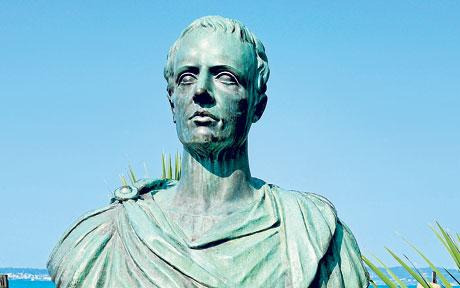
84 BC – Gaius Valerius Catullus, Roman poet of the 1st century (d: 54 BC); His love poetry was never surpassed in ancient times, and influenced a great many poets, both ancient and modern. Tibullus, Propertius, Horace and Ovid imitated his techniques, and, during the English Renaissance, English poets such as Ben Jonson and Robert Herrick attempted to capture the quality of Catullus (unsuccessfully) in English.
Most of Catullus's poems are short; in a few concise lines he is able to create an experience of love, friendship, or sometimes bitterness and anger either at his mistress (whom he called "Lesbia") or at some person he despised.
Although most of his poems are about heterosexual love, a good number of them are devoted to the love of boys. These are particularly lusty, some of them very funny, and all of them explicitly sexual. (Since many editions of Catullus prudishly omit these poems, and since almost all translations are severely bowdlerized, only one edition in translation is recommended, that by Peter Whigham.)
For example, in a gay rape fantasy Catullus promises to throw his pal Aurelius a beating if he finds out he's toyed with the young boy who he'd been saving for himself:
... you bastard, you're willing to provoke me, Ah, then you'll feel my dire retaliation, feet spread and strapped, back-passage widely gaping, reamed all its length with radishes and *mullets! *mullet - a European fish
In one poem, the poet comes upon a young boy "stuffing his girl." With a wink to Venus, he "stuffs" the boy as "poetic justice." Since Catullus was a contemporary of Caesar, his pederastic poetry is characterized by the basic prejudice of the period: "taking" a boy is a manly act, but allowing another man to do unto you what you did unto him is sheer depravity.
Another of his poems:
This scenario is ridiculous and too funny, Just now I cought my girlfriend's little boy Wanking. If Dione approves, I took him With my hard-straining cock.
We would call this sexual abuse. For the Romans it was different. Assuming the boy Catullus assaulted was a slave, the worst he'd have to do was compensate the slave's owner for property damage.
Catullus also wrote love poems for his male lover Juventius. In Roman society, homosexuality itself was not an object of criticism, only the adult passive/penetrated participant in a homosexual act. We assume that Juventius is the younger, passive partner of Catullus, probably a teenaged boy, who at least in one poem cruelly rejected catullus..


756 – Abu-Nuwas al-Hasan ben Hani Al-Hakami (d.814), best known simply as Abū-Nuwās, was one of the greatest of classical Arabic poets, who also composed in Persian on occasion. Born in the city of Ahvaz, in Persia, where his father was from southern Arabia and his mother was Per-sian. His first teacher was the poet Waliba ibn al-Hubab (died 786), a master who initiated him into the joys of pederasty as well as poetry.
Although in the modern world, the Islamic countries are known as those most hostile to male love, it was not always so. In earlier times in the Moslem lands, famous Iranian and Arab poets such as Hafiz i-Shirazi and Abu Nuwas praised and rued the charms of boys (whom they plied with wine and seduced). Sufi holy men from India to Turkey sought to find Allah by gazing upon the beauty of beardless youths. Storytellers included gay love tales in the Thousand and One Nights. Artists like Riza i-Abbasi amused kings and princes with exquisitely wrought erotic Persian miniatures and calligraphies. Mullahs and censors railed against male love, but men of all walks of life, from Caliphs to porters, delighted in it and all looked forward to being attended by fresh-faced tellaks (masseurs) in the hamam, and "unaging ghilman (youths) as beautiful as pearls" in paradise.
I die of love for him, perfect in every way, Lost in the strains of wafting music. My eyes are fixed upon his delightful body And I do not wonder at his beauty. His waist is a sapling, his face a moon, And loveliness rolls off his rosy cheek I die of love for you, but keep this secret: The tie that binds us is an unbreakable rope. How much time did your creation take, O angel? So what! All I want is to sing your praises.
Originally trained in theology and grammar, Abu-Nuwas gained his great fame as a poet who excelled in lyrical love poetry, in lampoons and satire, and in "mujun" - frivolous and humorous descriptions of indecent or obscene matters. As with many other Islamic poets, he particularly celebrated in his poetry the love of wine - and boys. As one of the earliest Arab poets to write lyrical love poetry about boys, his achievement and influence helped to bring the genre to great heights.
In the Bath-House In the bath-house, the mysteries concealed by trousers Are revealed to you. All becomes radiantly manifest. Feast your eyes without restraint! You see handsome butts and shapely trim chests, You hear the murmuring of pious formulas, One lad to another: "God is Great!" "Praise be to God!" Ah, what a palace of pleasure is the bath-house! Even when the towel-bearers come in And spoil the fun a bit.
The only woman who played an important part in his life was Janan, a slave girl, but, because of his libertine conduct, she never trusted the sincerity of his love. When she asked him to renounce his love of boys, he refused, saying that he was one of the "people of Lot, " with reference to the Arab view that the Biblical Lot was the founder of homosexual love. Abu Nuwas was sexually interested in women or girls only when they looked like boys, but even then he considered their vagina too dangerous a gulf to cross. As he said (symbolically): "I have a pencil which stumbles if I use it on the front of the paper, but which takes great strides on the back." He also wrote about the pleasures of masturbation, which he saw as inferior to the love of boys - but preferable to marriage.


Samoan man, plus size, slightly muscular, sweet and kind looking
1899 – American Samoa is obtained by the United States. It has no law against sodomy, making it the only “free” jurisdiction of the United States.


1943 – Steve Rubell (d.1989) was an American entrepreneur and co-owner of the New York disco Studio 54.
Rubell and his brother Donald grew up in a Jewish family in Brooklyn, New York. His father worked as a postal worker and later became a tennis pro. Rubell was also an avid tennis player, but decided against playing professionally.
Entering Syracuse University, Rubell completed bachelor's and master's degrees in finance. While attending college, Rubell met Ian Schrager, who became a lifelong friend and business partner. Rubell and Schrager were both brothers of the university's chapter of the Sigma Alpha Mu fraternity.
Rubell joined the National Guard, returning to New York after a tour of duty in a military intelligence unit. He worked at a brokerage firm after his return. Rubell then decided to start his own business and opened two Steak Lofts restaurants, one in Queens, New York, and the other in Mystic, Connecticut.
With the help and knowledgeable influence of disco promoter Billy Amato (Smith), executive vice president 20th Century-Fox Records, Steve Rubell and Ian Schrager were introduced to the dance and disco market in early 1975 by John Addison of La Jardin. Rubell and Schrager opened two clubs, one in Boston with John Addison from La Jardin, the other, called The Enchanted Garden, in Queens in 1975, which later became Douglaston Manor. In April 1977, they opened Studio 54 in the old CBS Studio on West 54th Street that the network was selling. Rubell became a familiar face in front of the building, turning people away and only allowing entry to those who met his pedantic standards. Rubell also dealt with the club's celebrity patrons, ensuring that they were thrown lavish parties. His approach worked and the club made $7 million during its first year.
In December 1978, Studio 54 was raided after Rubell was quoted as saying that only the Mafia made more money than the club brought in. In June 1979, Rubell and Schrager were charged with tax evasion, obstruction of justice, and conspiracy for reportedly skimming nearly $2.5 million in unreported income from the club's receipts, in a system Rubell called "cash-in, cash-out and skim." Police reports state that cash and receipts were in the building and were hidden in the ceiling sections of Rubell's office, where both he and Schrager worked. A second raid occurred in December 1979. The pair hired Roy Cohn to defend them, but on January 18, 1980, they were sentenced to three and a half years in prison and a $20,000 fine each for the tax evasion charge. On February 4, 1980, Rubell and Schrager went to prison and Studio 54 was sold in November of that year for $4.75 million. On April 17, 1981, Rubell and Schrager were released from prison after which they lived at a halfway house for two-and-a-half months.
In 1985, Rubell, who was closeted for most of his life, discovered he had contracted HIV which later progressed to AIDS. He began taking AZT, but his illness was furthered by his continued drug use and drinking, which affected his compromised immune system. A few weeks before his death, Rubell checked into Beth Israel Medical Center in New York City under an assumed name, to seek treatment for severe peptic ulcers, kidney failure, and hepatitis. He died there on July 25, 1989. Rubell's official cause of death is listed as hepatitis and septic shock complicated by AIDS.

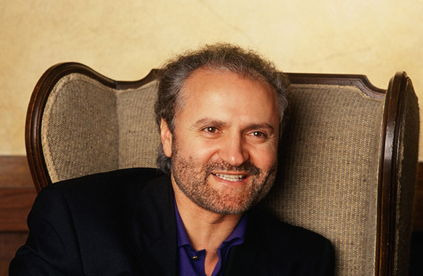
1946 – Gianni Versace, Italian fashion designer born (d. 1997); Italian designer of both clothing and theater costumes. He was influenced by Andy Warhol, Ancient Roman and Greek art, as well as modern abstract art; he is considered one of the most colorful and talented designers of the late 20th century.
Gianni Versace met Antonio D'Amico, a model, in 1982. The couple embarked on a long-term relationship that lasted 15 years, until Versace's untimely death. During that time Antonio worked as designer for the Versace sports line. Versace's will left his male partner D'Amico with a pension of 50 million lire (about $26,000) a month (for life), and the right to live in any of Versace's homes in Italy and the United States. D'Amico now runs his own fashion design company.
One July morning in the summer of 1997, returning from his customary walk on Ocean Drive, Versace was gunned down outside his ocean-front mansion in Miami Beach. He was murdered by spree killer Andrew Cunanan, who committed suicide shortly after the murder. Versace was buried in Lake Como, Italy.

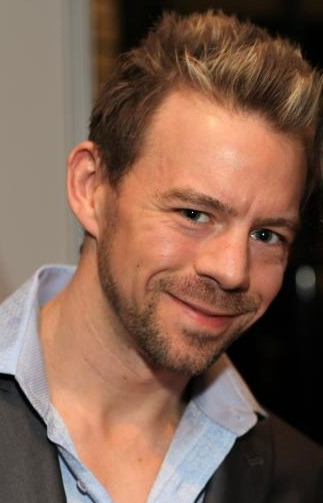
1976 – Erik Everhard is the stage name of Mitchell Hartwell, a Canadian pornographic actor and director, known for gonzo pornography films (porn's version of "reality" tv).
Everhard is a Canadian national of Ukrainian ancestry. In 1995, he moved to Vancouver, British Columbia to attend university, at which time he made his first forays into adult films. Everhard's adult film career began in Canada performing for websites. At the urging of friends and colleagues, he moved to Los Angeles in 1999 to pursue his career. His first shoot in the United States was for director Jules Jordan.

After securing himself as a performer, Everhard began directing videos for Anabolic and Diabolic Video in 2001. In 2003, he landed a distribution deal with Redlight District. In 2005, Everhard left Redlight, suing the company for breach of contract. He won the suit. He was then hired by Evil Angel Video. After shooting several films with Evil Angel, Everhard returned to work with Jules Jordan.
Everhard performed in about 2,400 films in his pornographic career.

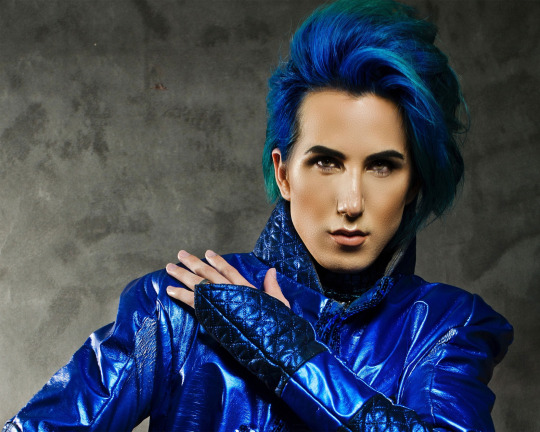
1980 – Ricky Godinez, known by his stage name Ricky Rebel, is an American singer-songwriter, dancer, musician, and recording artist. Politically, Rebel is known for at once being pro-Donald Trump and advocating for LGBT rights.
Rebel was born in Upland, California. He began training as a gymnast at the age of 7 years old, and ranked 15th in the state of California at the age of 11. Rebel began training in classical ballet and jazz dance styles around the age of 11. Rebel immediately entered dance competitions at the regional and national level. After some years of competitive dancing Rebel then began acting, and performed in musicals like Annie (1991), Oliver! (1992) and Phantom (1994).
In 1996, Rebel started working with the band No Authority as their lead vocalist. Since 2010 Rebel has been performing as a solo artist Ricky Rebel.
As part of his commitment to advancing gay rights in the United States Rebel performed at the 2014, 2015, and 2016 "Out at the Fair" festivals at The San Diego County Fair. Rebel also performed at Gay Pride festivals in major cities like Phoenix, Long Beach, Orange County, Palm Springs, San Diego, and Las Vegas. Also, in 2015 Rebel performed at Matinee festivals in Las Vegas and San Diego.At the 61st Annual Grammy Awards Rebel wore a pro-Donald Trump jacket. He stated, "I'm reflecting millions of Americans out there who voted for Trump. Keep America great. That's right, baby. We are here. We're here all around the world, 50 million of us. My name is Ricky Rebel and I'm a reflection of America."
Rebel has since attempted to appear with political commentator and public speaker Milo Yiannopoulos at a concert in Honolulu but the event was cancelled by the venue when they learned of Milo Yiannopoulus's controversial statements and alleged pedophilia advocacy.

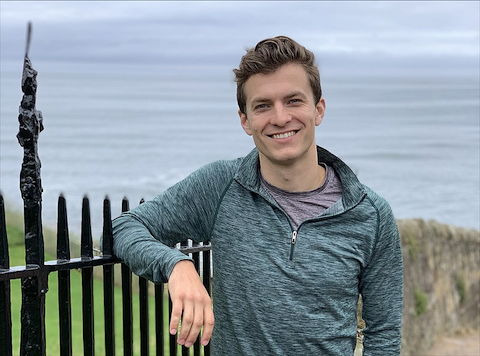
1992 – Cason Crane is an American mountain climber. In 2013, he became the first openly gay mountaineer to scale the Seven Summits.
Crane is the oldest of five children born to David W. Crane, the president of NRG Energy, and Isabella de la Houssaye, an international lawyer, in Mercer County, New Jersey. He lived in Hong Kong between the ages of one and six before returning to Lawrenceville, New Jersey. His younger brother Oliver Crane is an American adventurer and rower.
Crane attended Princeton Day School through his eighth grade year, along with the rest of his siblings. In 2011, he graduated from Choate Rosemary Hall, a private boarding school in Connecticut, where he competed in a number of sports. He came out as gay at the age of 14; both his parents and his school were supportive, although he experienced bullying by classmates on occasion. After deferring for two years to travel to Lebanon and Israel and climb the Seven Summits, Crane joined the Princeton University Class of 2017, majoring in history.
Crane summited his first mountain, Mount Kilimanjaro, as a 15-year-old freshman in high school with his mother. He described it as a "gateway mountain" which piqued his interest in mountaineering. As a junior, following the suicides of Tyler Clementi and one of Crane's friends, he was inspired to raise awareness about suicide among LGBT youth through mountain climbing. This led him to start the Rainbow Summits Project, with the goal of climbing the Seven Summits—the highest mountains of each continent—in order to raise funds and awareness for the Trevor Project.
By the beginning of 2013, a year after starting the Rainbow Summits Project, Crane had successfully climbed five of the Seven Summits: Mount Kilimanjaro in Tanzania, Mount Elbrus in Russia, Cerro Aconcagua in Argentina, Carstensz Pyramid in Indonesia and Vinson Massif in Antarctica. In May 2013, he reached the summit of Mount Everest in Nepal, guided by New Zealand climber Lydia Bradey, the first woman to summit Everest without using supplemental oxygen. Crane's successful ascent of Mount McKinley in July 2013 at the age of 20 marked his completion of the Seven Summits, making him the first openly gay man to have done so. By the completion of the project, Crane had raised US$135,000 for the Trevor Project.


2013 – This is the first official day that LGBTQ couples in Hawaii, both residents as well as tourists, may marry in the Aloha State


10 notes
·
View notes
Quote
Each of us have the ability to be the Divine Gods we are in our human form. However, we have to be willing to do the work to learn our true self. This is root vertical channel work that naturally begins to unlock when we build a relationship to nature. Mama Nature is our greatest teacher and her observable ways always mirrors our highest capacity perfectly. Heaven on earth is only a rooted state of ascension, where we are able to pivot up and down the central channel at will from feet to crown and execute from the energy of the body most needed. We can literally go to bed and wake up into a quantum leap of higher *embodied* knowledge and start living in new more vibrant reality the next day. May you release, open up and allow source to continue to bless you with relentless wisdom from the inside out.
India Ame’ye, Author
76 notes
·
View notes
Text

Anna Pavlovna Pavlova, born Anna Matveyevna Pavlova on February 12, 1881, in Saint Petersburg, Russia, is celebrated as one of the greatest ballerinas of all time. Her legacy is intricately tied to her remarkable career and her contribution to ballet as an art form. Pavlova's rise to fame and her global influence is a story of talent, dedication, and pioneering spirit.
Pavlova's early life was marked by hardship and determination. Raised by her laundress mother, she developed a passion for ballet at a young age after attending a performance of "The Sleeping Beauty" at the Mariinsky Theatre. Inspired by what she saw, Pavlova auditioned for the Imperial Ballet School and, despite initial setbacks due to her slight physique and lack of classical beauty, was accepted at the age of 10. Her teachers quickly recognized her extraordinary potential, and she began to develop her unique style.
By 1899, Pavlova had graduated and joined the Imperial Russian Ballet. Her talent soon caught the eye of Marius Petipa, the great ballet master, who created many roles specifically for her. She was promoted to prima ballerina in 1906. Her technique, characterized by delicate, ethereal movements and expressive artistry, set her apart from her contemporaries. Pavlova's most famous role, "The Dying Swan," choreographed by Michel Fokine in 1905, became synonymous with her name. This solo, depicting the last moments of a swan’s life, showcased her ability to convey profound emotion through dance and remains one of the most iconic pieces in ballet history.
Pavlova's career took a significant turn in 1909 when she joined Sergei Diaghilev's Ballets Russes. This association brought her international acclaim and the opportunity to tour Europe and the Americas. However, Pavlova soon chose to form her own company, which allowed her greater creative freedom and the ability to bring ballet to a broader audience. She was a trailblazer, becoming the first ballerina to tour extensively around the world. Her travels took her to places where ballet had never been seen, including South America, India, Mexico, and Australia. Pavlova's tours played a crucial role in popularizing ballet globally, and she is credited with inspiring countless young dancers to pursue the art.
Despite her fame, Pavlova remained deeply committed to her craft. She was known for her rigorous practice routines and her unwavering dedication to maintaining the highest standards of performance. Her lifestyle was disciplined, with her personal and professional lives closely intertwined. Pavlova's home in London, Ivy House, became a center of artistic activity and a sanctuary where she could prepare for her performances.
Pavlova's influence extended beyond her performances. She was instrumental in preserving and promoting classical ballet during a time of significant cultural change. Her efforts helped to secure ballet's place in the cultural landscape of the 20th century. Pavlova's commitment to her art and her ability to connect with audiences on an emotional level ensured her lasting legacy.
Tragically, Anna Pavlova's life was cut short when she died of pleurisy on January 23, 1931, in The Hague, Netherlands. Her death was a significant loss to the world of dance, but her legacy lives on through her recordings, photographs, and the countless dancers she inspired. Pavlova’s dedication, artistry, and pioneering spirit continue to influence ballet and dance worldwide.
The photograph of Anna Pavlova taken on June 1, 1912, and colorized by Klimbims, captures a moment in the life of a woman who transformed the world of ballet. Her poised demeanor and the grace evident even in still images are a testament to the exceptional talent that defined her career. Pavlova’s life story is not just one of personal success but of profound impact on the cultural fabric of the modern world.
2 notes
·
View notes
Text

Day 18: Kundavai Pirattiyar!
Kundavai Pirattiyar was the daughter of Panataka II, ruler of the tenth century Chola Empire in southern India. It was a dark time for the empire - internal conflict over the throne and wars with rival neighbors had reduced the once-mighty maritime power to a fraction of its former size. Panataka II was constantly at war, but despite this, he seems to have been close to his daughter, who grew up well-educated. Kundavai made a diplomatic marriage to Vallavaraiyan Vandiyathevan, a vassal lord and general who was soon crowned king of his own territory. Kundavai, however, made a request of her father - rather than leave her home to be a queen, she preferred to remain a Chola princess.
Her wish was granted - and her family soon needed her support. The suspicious death of her elder brother devastated her father, who went into seclusion and died shortly after. A cousin - and the chief suspect in Kundavai’s brother’s death - succeeded to the throne, followed in turn by another of Kundavai’s brothers, Rajaraja. He and Kundavai seem to have been close; one of his daughters shared her name, and it was Kundavai who raised Rajaraja’s eldest son, Rajendra.
It was as a mentor and teacher that Kundavai shone. In addition to her nephew, who would become one of the dynasty’s greatest rulers, she tutored noblewomen. She was also a religious patron, supporting Jain and Hindu temples, founding a hospital, and becoming known across the empire for her generosity and wisdom.
#kundavai pirattiyar#kundavai#indian history#chola dynasty#history#awesome ladies of history#october 2024#my art#pen and ink
5 notes
·
View notes
Text
A Critique of Ascender's Comment and My Own Comments Regarding This Wonderful Book of Kabir Panth Prayers, by James Bean
Reviewer: ascender - August 15, 2024
Subject: Need for a Living Master
"Sant Kabir was the Guru of His time. Only those to whom he personally gave initiation while in His human form can return to Sat Lok in His Name. The vast expanse of darkness of Mahasunya or Maha Sunn is said to be 80 billion miles, it cannot be crossed without a living Satguru to take the soul across to the purely spiritual realms above the region of Sunn. The worship of dead saints cannot liberate the Jiva. Only a living Master can do so. The search for God in the human form; Shabd incarnate, "The word made flesh and dwelling amongst us" is the greatest imperative for the devotee wishing to reach back to the Absolute Lord. However, the sacred bani of the sants, of Kabir Sahib and others, is a guide and inspiration to assist us in our understanding, and increase our longing for our True Home."
My critique of the review left by the person with the username Ascender made on August 15, 2024 at the Internet Archive titled, Need for a Living Master, as well as a brief exploration of the book being commented upon, Kabir Panth Book Of Prayers -- Sandhya Path -- The Path of Spiritual Realization. And this also serves now as a kind of Forward for this rare book in the Sant Dharam Das Kabir tradition of the Anurag Sagar.
Not as Ascender suggested, but as the contents of the book and the title of the book clearly state, this is NOT a collection of verses all attributed to Guru Kabir but actually represents a compilation of compositions made by many over the centuries in the Satsang Community of Kabir. These are used as prayers, psalms (hymns) and sayings of wisdom by those satsangi disciples part of the living sangat related to Kabir. Indeed, the modern-day lineage of Sant Satgurus of Sant Mat connects directly back to the Sant Dharam Das line of gurus of this Kabir community in fact. There are many such collections of writings from the Sant Dharam Das line of Masters, and some of those other texts such as the Anurag Sagar (The Ocean of Love), Kabir Sagar (Ocean of Kabir), and others have also been uploaded to the web as wonderful ebooks, done with the motivation of edification and education of those curious about the spiritual path. "You can not just brush the surface of a culture and pretend that you’ve found an answer. We must turn inward to the deepest of our own roots to find the very best of who we are." (Ravi Shankar)
So, yes Kabir taught the need for a living Master as have his many spiritual successors all the way up to the living present time. It would be a fallacy for anyone to suggest being curious about the earlier writings of the Sant tradition of India somehow would mean that one would not be interested in being initiated by a living Master. Rather, it's the opposite of that. It is not an "either or" proposition. The interests of the faithful devotee of Sant Mat encompassess both. Those who are initiated by contemporary Masters, those who are followers of the spiritual practices of Sant Mat, are precisely the ones who are most-of-all fans of the literary treasures, the spiritual classics, scriptures, the poetry and prose, the banis and bhajans of the earlier generations of these Saints and Mystics. Studying the teachings of the Masters is also a way to break free from being stuck in one's mind -- our habitual thinking patterns, and practice Remembrance of the spiritual path (satsang).
And if one actually takes the time and reads this, Kabir Panth Book Of Prayers, they will soon discover that it does advocate sitting at the feet of a Living Teacher of one's own time: "By devotion, all the sufferings of Dharam Dass vanished. It is by the good deeds of millions of births that he met Satguru Kabir." "Who is greater than Ram and Krishna? Even they accepted a guru. They were masters of the three worlds, but were humble before the guru." "As many saints, mahants and sadhus there were, they all served at the lotus feet of the guru." "Do not go through life without a guru. Keep this firm principle in mind!" "Without a guru, who else can remove doubts? In what way can the heart possess discriminative spiritual knowledge? Without a guru ignorance cannot be removed, and the soul does not realize it's true form." There are whole sections of this book extolling the need for a living master of the time!
The traditional format of a satsang is for someone to recite or sing from some earlier collection of Sant verses such as from the Bijak of Kabir, the Adi Granth, Anurag Sagar, Paltu Sahib, Namdev, Tukaram, Tulsi Sahib, Soamiji Maharaj, etc... and then a Master or whoever is giving the satsang discourse comments upon those verses. Traditional Sant Mat from India, as it has always been, focuses upon the teachings of the living Master, the earlier Masters of the lineage as well as the great collection of banis, bhajans, granths, all this vast Sant literature that has accumulated over the centuries out of the utmost respect for all of these great Masters, Saints and Sages that have blessed the world over the millennia, the various yugas, great epochs of time. One is counseled constantly about the need to have satsang every single day, to hear from one's teacher (Sant Satguru), to spend some time studying the instruction and wisdom of the Saints, to do simran and to meditate each and every day. "You should do your Bhajan and Simran every day." (Baba Jaimal Singh) "Do not live even a single day without inner meditation." (Baba Devi Sahib of Moradabad)
This Kabir Panth Book of Prayers is one such valuable collection, I dare say, is one of the more colorful assemblages of verses intended to inspire the satsangi to do the spiritual practices of the Sants: Simran: the Remembrance of names of God, Dhyan: inner visions of Divinity, radiant forms of Light, and Bhajan: the Unstruck Melody of the Sound Current or Audible Life Stream. And beyond these, one is encouraged to become a bhakta, a devotee approaching the Supreme Being with a spirit of love and devotion at every step. One is the "drop" of the soul merging into the Divine Ocean of Love. So the place we wish to ascend to is not to just any astral occult realm of esoterica but the Most High heavens of the Eternal Truth and Love, "the Far Country" that is the Goal of this Path of the Masters.
"The tenth gate is the gathering point of consciousness. Therein lies the path for our return. The tenth gate is also known as the sixth chakra, the third eye, Bindu, the center located between the two eyebrows. This is the gateway through which we leave the sense organs' gates, enter the divine realms, and finally become established in the soul. We travel back from the Realm of Darkness to the Realm of Light, the Light to the Divine Sound, and the Realm of Sound to the Soundless State. This is called turning back to the Source." (Swami Santsevi Ji Maharaj, Book of Sarvadharma Samanvy)
How could the love between Thee and me sever?
As the leaf of the lotus abides on the water,
so thou art my Lord, and I am Thy servant.
As the night-bird Chakor gazes all night at the moon,
so Thou art my Lord, and I am Thy servant.
From the beginning until the ending of time,
there is love between Thee and me;
And how shall such love be extinguished?
Kabir says: "As the river enters into the Ocean, so my heart touches Thee."
(Guru Kabir, Songs of Kabir)
Free Online Book at the Internet Archive E Library: Kabir Panth Book Of Prayers -- Sandhya Path -- The Path of Spiritual Realization:
https://archive.org/details/KabirBookOfPrayersSandhyaPath/mode/2up
Archive of All Past Posts With Search Engine:
https://SantMatRadhasoami.blogspot.com
Free Sant Mat Radhasoami E-Library Online:
https://santmatradhasoami.blogspot.com/2019/01/sant-mat-radhasoami-books-main-page-e.htm
#guru kabir#true kabir#sant mat#radhasoami#satsang#spirituality#meditation#prayer#radhasoami is kabir#surat shabd yoga#bhakti
4 notes
·
View notes
Text

WHAT IS THE MOST IMPORTANT PRACTICE?
I went to see my root teacher Trulshik Rinpoche before he passed away. I got a few minutes so I asked Rinpoche, what is the important practice? He just simply said two things to me. First, you check your mind, see your mind properly, know your mind, realize your mind. Second, whatever you do, body-speech-mind always should be interconnected with Dharma. I think that's one of the greatest teachings I have ever got. It is important for all of us to really contemplate ourselves. We must see in ourselves. It is OK to see yourself you are a failure. It is OK to see yourself to have so much ugliness. Because if you do not see the faults within yourself, how are you ever going to become a Dharma student?
Nowadays Dharma is so accessible wherever you go. So many teachings on internet, but not much value. In old days, people went all the way to India or Tibet to search for teaching years and years, and practise. Now it's very funny people say "teacher never comes to me, how I'm supposed to find a teacher?" or "if teacher doesn't tell me what to practise, what I'm supposed to do?" Teacher is not your father, feeding you food in your mouth, oh baby you eat la.
So whether the teacher comes or not depends on you.
How much you want to give yourself to practice? If you don't have genuine interest and dedication, even thousand teachers come to you, it can't help. You look at yourself and compare your own situation, l'm sure you know what I mean. So teacher's duty is to make you recognize the inner teacher, the pure mind of yourself. Teacher's duty is for you to become like the great realized one. Don't just think those great masters are amazing. That's not the attitude we should have. We should have the determination - I want to become those great masters.
Teacher's duty is not to dwell in your mundane life, your life problems whatever. Teacher is there to make you realize who you are, to make you go on proper path. That's something you must understand.
~ Dilgo Khyentse Yangsi Rinpoche
#buddha#buddhist#buddhism#dharma#sangha#mahayana#zen#milarepa#tibetan buddhism#thich nhat hanh#enlightenment spiritualawakening reincarnation tibetan siddhi yoga naga buddha#bhutan
3 notes
·
View notes
Text
Best YouTube Channel for MBBS 1st Year Physiology: Dr. Preeti Tyagi's In-Depth Lectures

Embarking on the journey of an MBBS degree can be both exciting and challenging, especially when it comes to mastering complex subjects like physiology. As a first-year student, finding the right resources to aid your understanding is crucial. Look no further than Dr. Preeti Tyagi’s YouTube channel, the best YouTube channel for MBBS 1st year physiology, a goldmine of knowledge designed to provide you with clear and comprehensive insights into the intricacies of physiology.
Why Dr. Preeti Tyagi’s Lectures?
In-Depth Explanations: Dr. Preeti Tyagi’s lectures are renowned for their detailed explanations that break down complex physiological concepts into manageable segments. Her methodical approach ensures that students grasp foundational principles before progressing to more advanced topics, making her the best physiology teacher for MBBS 1st year.
Visual Aids and Demonstrations: Understanding physiology often requires more than just reading from a textbook. Dr. Tyagi’s use of visual aids, diagrams, and demonstrations enhances comprehension and retention. Her ability to illustrate complex processes through engaging visuals makes learning more interactive and effective.
Exam-Oriented Content: Dr. Tyagi’s experience as an educator shines through in her ability to tailor her lectures to the needs of MBBS students. Her content is aligned with the syllabus and exam requirements, helping you focus on the most pertinent information and excel in your assessments.
Accessible Anytime, Anywhere: One of the greatest advantages of YouTube as a learning platform is its accessibility. You can watch Dr. Tyagi’s lectures anytime and anywhere, making it easy to fit study sessions into your busy schedule. Whether you’re revisiting a challenging topic or preparing for exams, her videos are always at your fingertips.
Engaging Teaching Style: Dr. Tyagi’s passion for teaching and her engaging style keep students motivated and interested. Her enthusiasm for physiology is contagious, making complex subjects feel less daunting and more approachable. This quality places her among the best physiology teachers in India.
How to Get Started To start benefiting from Dr. Preeti Tyagi’s invaluable lectures, simply head over to YouTube and search for her channel. Subscribe to stay updated with her latest videos and explore her existing content library that covers a wide range of physiology topics relevant to your MBBS curriculum.
Student Testimonials Many students have praised Dr. Tyagi’s channel for its clarity and effectiveness. Here are a few testimonials:
“Dr. Tyagi’s lectures have been a game-changer for me. Her explanations are so clear, and the visual aids really help me understand the concepts better.” - Rohan, MBBS 1st Year Student
“I was struggling with physiology until I discovered Dr. Tyagi’s channel. Now, I feel much more confident in my studies.” - Priya, MBBS 1st Year Student
Conclusion Finding the right resources is crucial for success in your MBBS journey, and Dr. Preeti Tyagi’s YouTube channel stands out as an exceptional choice for physiology. With her in-depth explanations, engaging teaching style, and accessible content, you’ll find yourself better prepared to tackle the complexities of physiology and excel in your studies. Subscribe today and take the first step towards mastering MBBS 1st year physiology with confidence. Embrace the opportunity to learn from the best physiology teacher for MBBS 1st year and one of the best physiology teachers in India on the best YouTube channel for MBBS 1st year physiology
#turningbrain#drpreetityagi#physiology#studytips#SubscribeNow#noida#medicallecture#mbbs#nursingeducation#JoinUs#medicaleducation#PhysiologyLectures#medicalschoollife#MBBSJourney#drpreetityagilectures#humanphysiology#explore#nursingstudents#bestmedical#anatomy
6 notes
·
View notes
Text

The age of gurus and disciples is dying.
The time of second-hand spiritual revelation is coming to an end.
A new age of democratic teacher-student relationship is dawning.
Where we are all teachers and we are all students.
And we are all expressions of the One.
And we all have direct access to the Divine.
And no guru has the final Answer.
And we are all free to ask Questions.
I have no guru. I have never had a guru.
Or rather, life itself has been my greatest guru.
Pain has been my guru. Joy has been my guru.
The most profound heartbreak has been my guru.
Every relationship has been my guru.
Every death has broken my heart open and taught me and saved me.
Every moment has transmitted the teaching.
Every disappointment has brought me closer to the Ground,
closer to the peace that is my own absence.
The guru was not found on an ashram in India.
Or in ancient books.
It was found Everywhere.
In friends, lovers, students, teachers, strangers on the Number 23 bus. My cat. A broken heart, mending. A song on the radio that suddenly took my breath away. A missed opportunity. A promise, kept or unkept.
You are all part of this divine play, friends.
This heaven in which everyone receives exactly what they need.
Not always what they want, but always what they need.
And you are all held in the arms of the Beloved, without exception.
Fuck it. Call me a guru, call me a non-guru, call me a fraud.
Call me a friend, call me a narcissistic screwed-up mess.
Ignore my song completely.
I honestly don't mind.
I love you, and I love this
perfectly broken-open life where
our conclusions
are continuously exploding
like dying stars.
- Jeff Foster
9 notes
·
View notes
Text
Guru Purnima 2023: Celebrating the Sacred Bond Between Guru and Disciple

Guru Purnima is a holy festival that is observed in India and several other countries like Nepal, Bhutan to pay respect and show appreciation for spiritual guides, mentors, and gurus. The word “Guru Purnima” comes from the Sanskrit language, where “guru” stands for “teacher” or “guide,” and “purnima” is used to describe the full moon day.
Guru Purnima has a long history and is very significant in terms of both history and culture. The custom of paying respect to gurus and spiritual teachers has centuries-old roots in many different civilizations.
This day is advantageous to meditate and practice yoga sadhana as it is believed to strengthen one’s spiritual practise and establish a connection with higher consciousness. The spiritual importance of the day magnifies the advantages of these techniques, encouraging inner change and bringing one’s existence into alignment.
When is Guru Purnima?
Guru Purnima is celebrated on a full moon day during the Ashadha month (June–July) in accordance with the Hindu lunar calendar. The celebration this year will take place on July 3, 2023.
Guru Purnima Muhurat :
Why is Guru Purnima Celebrated?
Guru Purnima festival holds significance beyond the realms of spiritual teachings. Along with the traditional practises, greetings, messages, and presents between gurus and followers have become customary during the modern era.
Also known as Vyasa Purnima, Veda Vyasa the author of the Hindu epic, Mahabharata, was born on this day. Shri Mahadev Acharya, Shri Ramanuja Acharya, are considered the greatest gurus in Hinduism. Because it is believed that on this day, Gautam Buddha gave his first sermon at Sarnath, the Buddhist also honour him by celebrating Guru Purnima.
A day of great spiritual significance, it emphasises the value of the guru-disciple bond. It serves as a reminder to respect the advice and lessons learned from our mentors and to foster a mindset of continuous learning and improvement.
There are various reasons why Guru Purnima is observed, and each one emphasises the importance and significance of this auspicious day.
The Guru – Disciple Relationship :
The guru-disciple relationship has been cherished for ages and it is not limited only to that. It includes all the teachers and mentors who have made a significant contribution to moulding our lives. It’s the time to acknowledge them who have provided direction, and inspiration in various facets of life. By honouring them, we recognize the invaluable contributions they have made and the impact they have had on our personal growth.
Expressing Gratitude and Reverence :
The Guru Purnima celebration provides a beautiful platform for disciples to express their deep gratitude and reverence towards their gurus. On this blessed day, the disciples rise early and perform rituals in tribute to their teachers. Flowers, incense, and other sacred items are offered during puja, a traditional worship practise, as a sign of the disciple’s devotion and appreciation. By expressing gratitude, the student not only deepens their relationship with their guru but also develops humility and appreciation in themselves.
Self-reflection and Renewal :
During this day, disciples reflect on the teachings of the gurus and renew their commitment to the path of learning and growth. It’s time to review the guru’s insightful advice and apply it to everyday life. Disciples congregate in places of worship and learning, where they hear sermons, take part in discussions, and perform devotional acts. These activities offer a venue for expanding knowledge, self – reflection.
Celebration of Learning and Knowledge :
Guru Purnima honours learning and knowledge in general. It serves as a reminder of the value of education—spiritual and otherwise—in moulding people and civilizations. The festival promotes a long-lasting sense of humility, open-mindedness, and curiosity when it comes to learning.
Astrological Significance of Guru Purnima :
Astrologically, Guru Purnima holds significant importance due to the alignment of celestial bodies. The festival falls on the full moon day (Purnima), which is considered highly auspicious. Astrologers claim that during Guru Purnima, the moon remains in both the Venus– and Jupiter-ruled Purvashadha nakshatra and the house of Sagittarius.
Our emotions and thoughts are supposed to be governed by the moon. Hence, during Guru Purnima, the relationship between the heart and mind is emphasized and gurus tend to nurture this connection, enabling us to develop a nature that is both moral and pragmatic.
If you are seeking online astrology consultation, visit lineologyglobal.com. We offer online services for astrology consultations, providing insights and guidance based on astrological principles.
7 notes
·
View notes
Text
Swami Vivekananda Quotes - National Youth Day 2024

One of India's greatest spiritual masters, Swami Vivekananda, is recognized for having elevated Hindu philosophy to a global prominence. His well-known address at the 1893 World's Parliament of Religions in Chicago permanently altered public perception of India. This Chicago speech is regarded as the best speech delivered by an Indian speaker. In his speech, Vivekananda brought up communalism, religious intolerance, and bloodshed. Ramakrishna Mission was created by Swami Vivekananda. In honor of the great saint Swami Vivekananda on the occasion of his birth, we have collected a few of his timeless sayings that still hold true today. On January 12, 1863, Swami Vivekananda was born in Calcutta, British India, as Narendra Nath Datta. In India, January 12, also known as Yuva Diwas, is celebrated as National Youth Day in honor of Swami Vivekananda.
“ Experience is the only teacher we have. We may talk and reason all our lives, but we shall not understand a word of truth.. ”
“ I pray to God that every one of you may become a bright, shining lamp, and carry the light into the world.. ”
“ अपने सपनों को अपनी मेहनत से मिलता है, और उन्हें पूरा करने के लिए हमें उन पर विश्वास करना होता है।. ”
“ In a day, when you don’t come across any problems – you can be sure that you are travelling in a wrong path. ”
“ It is the repetition of affirmations that leads to belief. And once you believe in a thing, it has the power to become real.. ”
Read More...
#youthday2024#youthday#youth#nationalyouthday2024#nationalyouthday#swami vivekananda#inspirational quotes
2 notes
·
View notes
Text


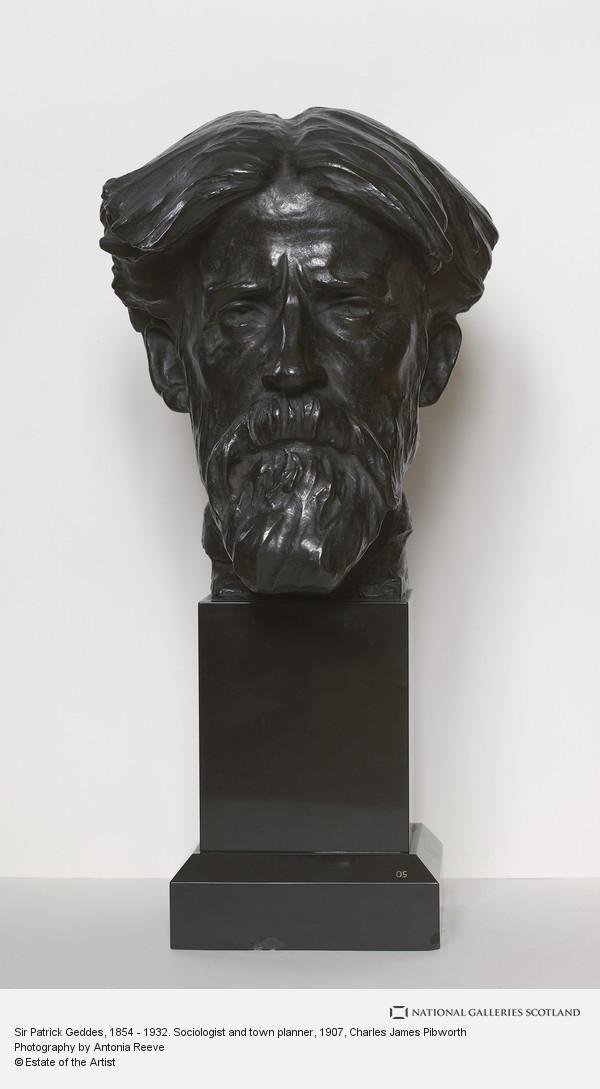
On October 2nd 1854 the biologist, sociologist, geographer, philanthropist and pioneering town planner, Patrick Geddes, was born in Ballater.
Some biographies still maintain that he was born in Perth, not Ballater! It is generally conceded nowadays that he was born in the Deeside town, it is not known in which house and, with his father a serving soldier; it may even have been in the
barracks. A few years after Patrick was born the Geddes’s moved to Perth, where their house, Mount Tabor is still in existence and whence, eventually he went to the Academy. In addition to formal schooling, it is known that Geddes, from an early age was fascinated by plants and animals – he spent hours and hours botanising on Kinnoull Hill. As he grew up he initially wanted to be an artist but father put that idea out of his
head.
He had a lifelong contempt for examinations and never took a university degree. After a period of private study, he chose botany as his subject but left Edinburgh University after one week. He went on to study botany and zoology with individual teachers and mentors in London and Paris. It was in Paris that he became influenced by the work of the French sociologist Le Play.
Geddes became a demonstrator in practical physiology at University College London, and in 1879 he travelled to Mexico to collect biological specimens. While there, he suffered temporary blindness and this left him with permanently weakened eyesight. It was during this period that he discovered his 'thinking machines' — a visual method of presenting and connecting facts and ideas to aid thought.
Geddes spent most of his life outside normal academic channels. He seemed to have difficulties expressing his ideas in writing. However, he had a gift for mobilising others and for putting his ideas into practice.
Geddes succesively demonstrated or lectured in Physiology at University College, London, in Zoology at Edinburgh University from 1880 to 1888, and held the Chair of Botany at University College Dundee from 1888 to 1919. At the University of Bombay, India, he organised a department of sociology and civics and held the Chair of Sociology there from 1919 until 1924.
Although trained in Biology, Geddes had generalist interests and these soon led him to become a social geographer, practical administrator, historian, dramatist and philosopher. He involved himself in the renovation movement in the Old Town of Edinburgh and it was in the Old Town too that he situated his famous Outlook Tower, a museum of local, regional, Scottish, and world history.
In 1919, Geddes who was 'considered one of the greatest living authorities in civics and social survey' was entrusted by the International Zionist Commission to plan New Jerusalem and its proposed university. He was also the founder - in 1924 - of the College Des Ecossais (Scots College), an international teaching establishment located in Montpellier. In the British Mandated Territory (part of which later became Israel), the new city of Tel Aviv (the White City) was constructed from the early 1930s until the 1950s based on an urban plan by Sir Patrick Geddes - a plan which reflected modern organic planning principles. He was also involved in Indian town planning work.
3 notes
·
View notes
Text
Bellydance Week 7 v.2
Someone I know texted me saying that she thought she saw me biking in the rain on a busy street while undulating my spine and gyrating my shoulders and hips underneath my coat. Was that you?
"Yes it was me, Mama."
I left out a little later than usual hoping that the rain would ease up. It never did. In fact, it was raining so hard by the time I got on my bike that I couldn't see what was right in front of me. Eyes half-closed, I kept pedaling away. It was cold AF. It was rainy AF.. The weather was just....shitty AF. I could have opted out of not going today, blamed it on the weather, and just laid back in the warm bed. It would have made sense and been understood. But I won't melt and I'm no coward, so off I go on my 22 minute bike riding journey in less-than-ideal circumstances. "I'm going to make this bike ride feel good," I thought to myself.
I'm a magical woman, a lover archetype, and a real alchemist. And I understand the assignment of consciousness-how what we do today or how our perceptions today impacts our future to come. With that understanding, I tinker with my body --guide it into believing that I'm in an ideal experience-feeling warmth and lighthearted energy flow through my body, shimmying my shoulders, arching my spine, moving my hips on my bike seat. It all feels so good and what could have been an awful ride in cold rain with me lamenting like on how cold it was turned into me smiling at what was. By the time I got to the studio, my jacket was soaked. My pants were soaked. My scarf was soaked. My face was soaked. And yet my heart was soaked open as part of the wide rainy sky as I kept biking, undulating, and smiling to my destination.
I know that this biking moment in cold rain is actually full of warmth, mystery, and goodness. It is quiet undocumented moments like this that nobody but you ever see that makes a great dancer, artist, writer, teacher, musician, or lover. It is part of the practice.
That's why I don't understand women who resort to being jealous or insecure of other women who put in that work, the spirit, the time to get to their next level. Body goals. Health goals. Flexibility goals. Life goals. Creative goals. Project goals. Abundance goals. Relationship (s) goals. How are you going to be jealous of a woman who will bike in cold ass rain drenched in stained clothes while dancing to the sounds of rainfall without complaint?
I intimately know what it is like to run away from or numb one’s real power. And I know what it is like to stand fully in it again.
Jealousy is a very real and truthful human emotion, and one of the greatest shadows in the female lineage. If you don't alchemise jealousy, this vital life force will burn you in other ways. I have been on both sides of jealousy much of my life, but over the last decade or so, it is not an emotion I personally lean into. If nothing else, I know that it is possible to graduate beyond certain emotions, where the use of them becomes less and less to non-existent.
And the greatest truth is that resilience is built in the hard, unpretty, difficult moments. When life gets undeniably tough in less-than-ideal circumstances, I say quietly to my self "make love to it, Indy....get all that juice and shit out of it!" Sure, biking in warmer sunny weather would be so nice, but it is not what's happening for me right now. And somehow not merely accepting that reality, but drinking the juice from it, gives my body provisional strength and softness. It is this moment that plants a new seed that demonstrate that I'm serious and ready for that next level. --India Ame'ye, Author
22 notes
·
View notes